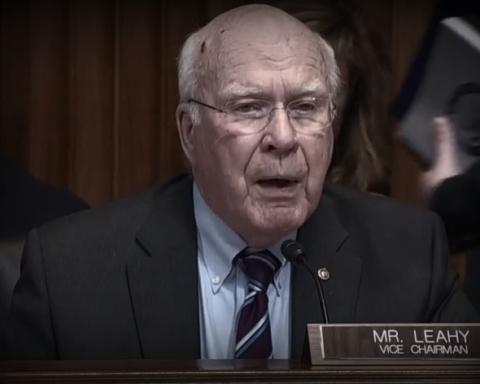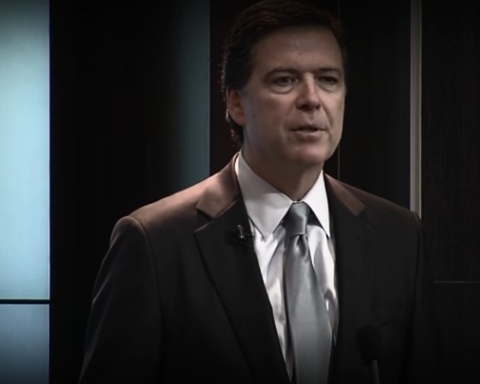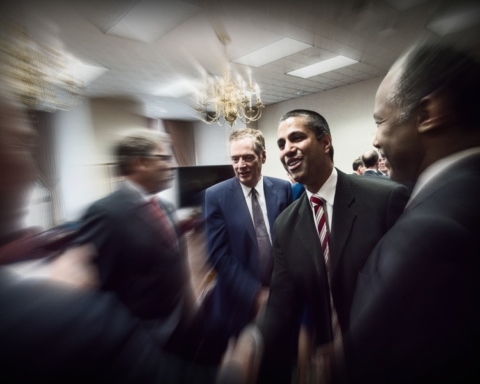Shortly before the Federal Communications Commission passed rules protecting internet content access, it also approved of new safeguards for community broadband that could serve as a reliable “public option” style alternative to oligopolistic internet service providers (ISP).
“You can’t say you’re for competition but deny local elected officials the right to offer competitive choices,” said FCC chairman Tom Wheeler, defending a proposal that partially overrules state laws in North Carolina and Tennessee that constrain community-run broadband infrastructure.
The case dealt with two municipalities, Chattanooga, Tenn., and Wilson, N.C., who established their own public internet networks to compete with corporate ISPs that weren’t willing to offer higher speeds at lower prices. Chattanooga’s “The Gig,” can offer internet speed fifty-times faster than the national average for about the same price that most Americans pay for connectivity. Wilson’s “Greenlight” offers bandwidth up to 20 times faster than its competitor, Time Warner, according to the Raleigh, N.C.-based News & Observer.
In response to these “public options,” state legislatures beholden to the telecom industry passed laws that limit or outright forbid the expansion of municipal broadband. Those measures can be traced back to the conservative think tank the American Legislative Exchange Council and the Tea Party-backed group American for Prosperity, both of which were seeded by some of the Koch Brothers’ billions.
Three of the five FCC commissioners supported pre-empting the state laws restricting The Gig and Greenlight. Chairman Wheeler likened the regulations to “thickets of red tape designed to limit competition.”
The FCC’s actions apply only to the two communities in Tennessee and North Carolina that filed a complaint with the commission. Wheeler, however, hoped Thursday’s decision would reverberate around the nation.
“I do hope that this attention does shine some light on the fact there is an ongoing effort to impose restrictions on what elected local official can do at the request of their people and that it calls out the activities of incumbents to block consumer choice and competition through legislation,” he said during the commission’s meeting.
Digital rights organizations and community leaders are applauding the move.
“By targeting these protectionist state laws, the FCC is siding with dozens of communities seeking to provide essential broadband services where people have few to no other options,” said Matt Wood, the policy director at Free Press, an organization that has been spearheading the push for internet freedom.
“This ruling will help spark innovation at the local level at a time when many Americans are frustrated with the quality of service provided by the likes of AT&T, Comcast, Time Warner Cable and Verizon,” he added.
The mayor of Chattanooga, Andy Berke, responded to the commission’s actions with a tweet reading, “Thx to the FCC for recognizing the importance of access & digital equity.”
Not everyone was pleased by the vote. “Three unelected officials in Washington, DC decided to rewrite Tennessee law on a party-line vote,” said Republican-appointed FCC Commissioner Ajit Pai.
He called the decision “odd and unlawful.” Fellow Republican-appointee on the commission, Michael O’Rielly, shared similar sentiments.
But Chairman Wheeler countered. “Let us be clear: this decision is pro-broadband, this decision is pro-competition, this decision is for the right of Americans through their elected local officials to make their own decision about their broadband future.”
The decision, predictably, has also given lawmakers on Capitol Hill something else to debate. Sen. Cory Booker (D-N.J.) called the ruling, in a tweet, “another great step today.”
House Energy and Commerce Committee chair Fred Upton (R-Mich.) and an energy technology subcommittee chair Greg Walden (R-Ore.) called the decision “disappointing.”
“The FCC should respect the decisions of each state – whether to allow their municipalities to build out broadband networks or not. A one-size-fits-all approach from unelected Washington bureaucrats prevents states and municipalities from making the tough choices to allocate precious taxpayer dollars,” they said in a joint statement.
Chattanooga, Wilson and the municipalities surrounding them that are now able to make “tough choices” without interference from state officials, however, certainly disagree.





